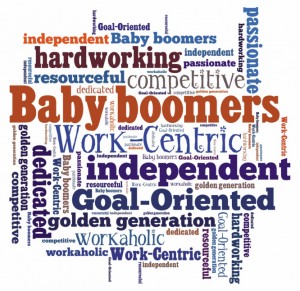The term “sandwich generation”has come to describe boomers — who find themselves supporting adult children and elderly parents at the same time. Possibly more visible in Hawai‘i, as costs of living rise, millennials are challenged to emerge into adulthood with financial independence. At the same time, our parents are living longer, and as they age we’re taking on caregiving tasks, with rising costs of longterm care looming in the background. How these physical, emotional and financial challenges are met calls for creative solutions. Our homes, families and communities are changing, with conventional homes now consisting of multiple and interdependent generations. Millennials are involved in caring for their grandparents, who in return, are more intimately involved in helping raise our families.
These family relationships have a direct impact on how the community and our systems of care evolve. Opportunities for families to be involved in strengthening their community and care systems are increasingly visible. Mayor Kirk Caldwell’s ongoing Honolulu as an Age Friendly City Initiative, for example, envisions inter-connected communities that will embrace older adults who want to remain socially involved and physically active, a city infrastructure that will remain responsive to the capabilities and safety of our people, equitable services, robust opportunities for intergenerational exchanges, and thriving quality of life among all residents. Active community and family participation will be vital to the success of the Honolulu as an Age Friendly City Initiative. Information on the initiative will be continually updated on the following website: www.kupunatokeiki.com/.
 Family involvement in developing health services and community supports is also crucial. Historically, care provided in the community was designed to provide services solely to the person with functional or cognitive limitations. In addition, Community services were limited, directed by the organization, and often times did not meet the individual needs of the person seeking help. More recently, recognition of individuals and families as essential partners in the care planning process has transformed the way we deliver care. We now see programs designed specifically for caregivers, such as the new T-CARE pilot project, available through the Maui County Aging and Disability Resource Center. Working together, care manager and caregiver create a personalized plan for the caregiver to better manage their responsibilities, while ensuring their own health and wellness. Caregiver feedback throughout the pilot project will be important, helping to determine whether or not T-CARE can be adopted and made available to all caregivers throughout Hawai‘i. For more information on this project, call the University of Hawai‘i Center on Aging at 808-956-5001 or at uhcoa@hawaii.edu.
Family involvement in developing health services and community supports is also crucial. Historically, care provided in the community was designed to provide services solely to the person with functional or cognitive limitations. In addition, Community services were limited, directed by the organization, and often times did not meet the individual needs of the person seeking help. More recently, recognition of individuals and families as essential partners in the care planning process has transformed the way we deliver care. We now see programs designed specifically for caregivers, such as the new T-CARE pilot project, available through the Maui County Aging and Disability Resource Center. Working together, care manager and caregiver create a personalized plan for the caregiver to better manage their responsibilities, while ensuring their own health and wellness. Caregiver feedback throughout the pilot project will be important, helping to determine whether or not T-CARE can be adopted and made available to all caregivers throughout Hawai‘i. For more information on this project, call the University of Hawai‘i Center on Aging at 808-956-5001 or at uhcoa@hawaii.edu.
Reinventing the role of family in healthcare, social services, and community initiatives will not only better support caregivers as they care for their parents and children, but will have a profound impact on the efficiency of care in our community. From hospital discharge planning to the development of new programs and community planning, as the two examples above highlight, there are a variety of vital roles for individuals and families that will ensure Hawai‘i’s communities are livable for all.


Leave a Reply